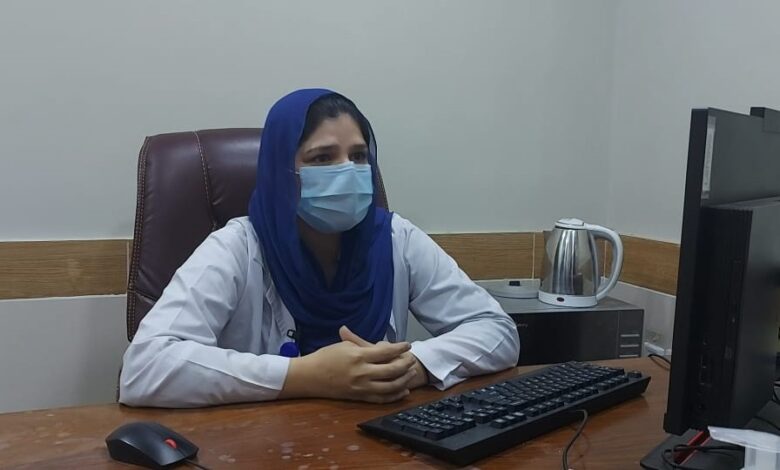
Aiman Zeb
"When I got breast cancer, I kept quiet because of shame because even talking about this disease is considered bad in our society. But when my pain got too much, I was forced to go to the doctor and was treated for a year. After that, I am now feeling better."
Hamida from Mardan district shared her experience battling breast cancer, highlighting the stigma attached to discussing the disease openly. The prevailing social norms made her initially keep her diagnosis a secret, out of embarrassment.
However, as her condition worsened, she felt compelled to seek medical attention, which marked the beginning of her year-long treatment journey. Today, she finds herself on a path to recovery, sharing her story as an inspiration for others.
Also Read: Afghan Government Bans TTP Fighters from Carrying Weapons; Implements New Rules
Throughout the world, including Pakistan, the month of October plays a vital role in raising awareness about breast cancer. Dr. Kiran, a General Surgeon at Lady Reading Hospital, stressed the global significance of October as Breast Cancer Awareness Month. She pointed out that breast cancer, a disease that affects both men and women, primarily impacts women.
Is Breast Cancer Curable?
Dr. Kiran delved into the topic of breast cancer curability. She noted that upon initial diagnosis, patients often remain unaware of their condition. Breast cancer presents in four stages, with many patients already in advanced stages, frequently at stage 4, by the time they seek medical assistance. This advanced stage significantly limits the effectiveness of treatments and may render the disease incurable.
Dr. Kiran emphasized the importance of prompt action when signs of breast cancer become apparent. These signs include feeling a lump or noticing changes in breast skin color. Early detection is key, as treatments vary according to the cancer's stage. If a patient presents at stage 1, the approach to treatment is vastly different from that of someone in advanced stages. While chemotherapy may help prevent cancer's progression, surgery remains the primary solution for advanced cases.
Early detection relies on vigilant self-examinations. Dr. Kiran highlighted that the frequency of these examinations depends on age. Those under 20 should conduct monthly self-examinations. Individuals aged 20 to 35 should do so every three months. Beyond the age of 40, annual examinations are essential. For those with a family history of breast cancer, additional screenings, including mammograms, play a crucial role in early detection.
Dr. Kiran underscored the importance of promptly consulting a healthcare professional if a lump is detected in the breast. Additionally, any changes in the color of the breast or the enlargement of lymph nodes in the armpit area should not be ignored. Overcoming any shame or hesitation regarding discussing these matters with a medical expert is crucial in the battle against this life-threatening disease.